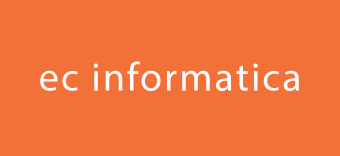Warning Signs
Seeking help is the best way to increase the likelihood of recovery. They may call you a hypocrite because they know you drink alcohol or have tried drugs before. You should be honest and explain that your use hasn’t harmed your life — or that it has, if that’s the case. This doctor could be a pediatrician or a mental health professional, such as a psychologist or a psychiatrist.
Get in touch with our team today to learn more about our resources and how we can help you or a friend kick their addictions. Addiction counselors or therapists are mental health professionals who specialize in treating substance use disorders. They offer individual and group therapy, conduct assessments, develop treatment plans, and provide counseling services to adolescents dealing with drug addiction. Identifying potential indicators of teen drug addiction can be a challenging task for parents. However, by observing your child’s behavior, physical appearance, and emotional well-being, you can look for certain signs that may indicate a substance abuse problem. People who abuse drugs, including teenagers, may also exhibit specific behavioral signs.
Why do teenagers try drugs?
Initially, teens may try substances out of curiosity or peer pressure. As the cycle progresses, recreational use can transform into regular consumption, leading to increased tolerance and the need for higher doses. The brain’s reward system is hijacked, reinforcing substance use and creating cravings. According to the National Institute on Drug Use, since the start of COVID-19, reported drug use has decreased1. This is likely due to school closure and social distancing (i.e. less peer pressure). Luckily, the downward trend has continued through the last couple of years; however, substance use still poses a threat.

Pre-existing mental health conditions like anxiety or depression can cause teens to seek solace in illicit substances in an attempt to cope with their symptoms. The Monitoring the Future study conducted by the University of Michigan reported that marijuana remains one of the most commonly used illicit drugs among teenagers. Parents, teachers, and other caregivers will benefit by educating themselves on the signs of drug abuse and addiction, so they can identify them early and provide necessary intervention and support. Studies have shown that teenagers are highly susceptible to drug addiction due to the ongoing neurological developments in their brains, peer pressure, and other environmental factors.
I’m In Recovery
First, drugs create their own natural mood swings; first, the user is euphoric and satisfied but is later met with an unpleasant come-down phase and a craving for more. Such conversations provide an opportunity to teach essential life skills like critical thinking, problem-solving, and self-esteem building. When teens are equipped with these skills, they are more likely to resist peer pressure and make responsible choices. The progression continues as dependence develops, causing withdrawal symptoms and further escalating substance abuse.

As a caring adult, be aware of any shifts in friendships, associations and activities. Ask simple questions of the teens in your life (e.g., “How’s so-and-so doing these days?”) as a way to signs of drug use uncover any red flags in peer relationships. If a teen is vague about who they hang out with—or how they’re spending their time away from home—take that opportunity to dig a little deeper.
Risk factors based on early life
Don’t expect adolescent friends to convince their peers to stop drinking or using drugs, though. Adolescents will typically avoid having such a potentially awkward conversation or otherwise intervening. Unfortunately, this has the effect of passively enabling the unhealthy behaviors.

Lascia un Commento
Vuoi partecipare alla discussione?Sentitevi liberi di contribuire!